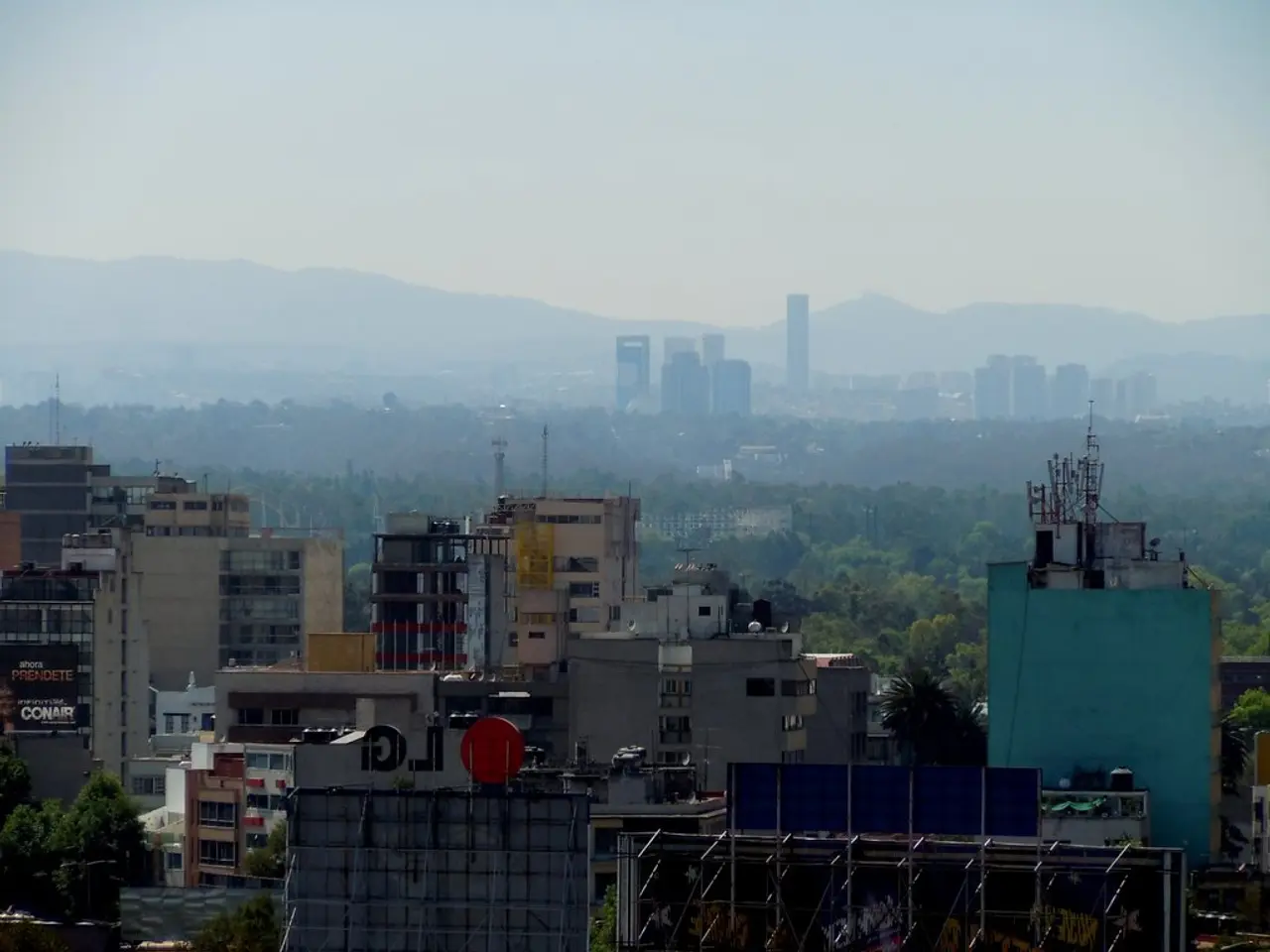Journey Toward Sustainability in the Creative Sectors by 2025: Paving the Way
UK's Creative Industries Embrace Sustainability: Key Strategies for Environmental Responsibility
In a significant step towards environmental responsibility, leaders from the UK's creative industries gathered at the WWF Living Planet Centre in Woking on May 23rd for the "Creative Industries 2025: The Road to Sustainability" conference. Co-hosted by Creative PEC and the University for the Creative Arts' Centre for Sustainable Design, the event aimed to explore strategies for the creative industries to drive environmental sustainability.
The creative industries, recognised as one of the eight key growth sectors in the UK Government's Industrial Strategy, face sustainability challenges such as high emissions, difficulties tracking emissions, accessing affordable renewable energy, supply chain difficulties, and growing waste, particularly e-waste.
Achieving net zero, environmental sustainability, and the circular economy are flagged as key issues in the DCMS Creative Industries Sector Plan published in June. To address these challenges, several concrete measures have been proposed.
- Phased Emissions Reduction Strategy: The Edinburgh International Festival offers a benchmark with its phased plan aiming for net zero emissions in stages. This approach enables gradual but measurable impact, supported by significant reductions already achieved in electricity use (56%) and gas emissions (26%) at their headquarters and waste minimized by 42%.
- Circular Economy Adoption: The Centre for Sustainable Design has conducted extensive research highlighting gaps and engagement levels in circular economy practices across creative subsectors. Their findings and recommendations could guide businesses and policymakers toward accelerating circularity, critical to tackling supply chain and resource challenges within the industry.
- Sustainable Production Resources: Organizations like the BAFTA-backed albert and the Broadway Green Alliance have introduced tools, workshops, and industry standards that help productions track, reduce, and manage emissions and waste. The albert Academy offers educational resources supporting greener media production, aiding the wider creative industries in moving towards carbon neutrality.
- Research and Skills Development Support: The Universities of Warwick and Leeds have launched a PhD program focused on sustainability and diversity within screen industries, directly responding to the UK’s Modern Industrial Strategy. This program helps cultivate talent capable of innovating around sustainability challenges and drives strategic change in industry practices.
- Alignment with National Strategies: The DCMS Creative Industries Sector Plan and the UK Government’s Industrial Strategy prioritize sustainability as integral to future growth. By integrating sustainability objectives with creative sector growth ambitions, these frameworks foster industry-wide commitments and resource allocation toward net zero and circular practices.
Professor Anastasios Maragiannis, Pro Vice-Chancellor for Creative Education at the University for the Creative Arts, highlighted the importance of embedding sustainability within creative education. A key opportunity identified is in better supporting, and scaling, infrastructure for the re-cycling and re-use of sets, costumes, and props across creative sub-sectors like theatre, film, and TV.
Professor Martin Charter, Director of The Centre for Sustainable Design at UCA, stressed the urgency for better data, smarter regulation, and collective practice to address the "missing parts" of the sustainability puzzle. The need for shared systems, better education on sustainable materials, and storytelling to shift public perception have been flagged as priorities for the creative industries.
The conference built on a previous workshop held by Creative PEC last summer, which identified key research questions around climate change and the creative industries. The event also sought to help inform a collaborative agenda to influence further policy action. Together, these efforts address emission reductions, improve supply chain sustainability, raise awareness, build capacity, and foster innovation aligned with policy priorities.
- Data-Driven Solutions: To aid in tracking emissions and resource usage, initiatives such as the Creative Industries Sustainability Network's Emissions Inventory tool gather data from industry members. This evidence-based approach provides a foundation for understanding the environmental impact of the creative sectors and supports the development of effective strategies.
- Innovation and Collaboration: Collaboration between creative industries and environmental science has led to innovative solutions for climate-change and sustainability issues. For instance, the use of biodegradable materials in costuming for theater and film reduces waste and promotes a more eco-friendly lifestyle.
- General News: The "Creative Industries 2025: The Road to Sustainability" conference attracted media attention, signifying growing public interest in the green initiatives of the UK's creative industries and their roles in addressing environmental challenges.
- Finance and Investment: Investment in green finance opportunities, such as renewable energy sources, by creative businesses is crucial to reducing emissions and promoting a circular economy. Financial institutions and governments should prioritize sustainable investment within creative industries to ensure long-term growth and competitiveness.
- Culture and Arts: Supporting the adoption of sustainable practices within the culture and arts industries fosters an environmentally-conscious society. The promotion of sustainable storytelling and the exploration of environmental themes in creative works can inspire people to take action and contribute to positive climate-change outcomes.
- University-Industry Collaboration: Partnerships between higher education institutions and the creative industries have the potential to drive advancements in education and self-development. This collaboration can result in new educational programs focused on environmental science, technology, and policy, equipping students with the skills needed to tackle sustainability challenges within creative industries and contribute to the UK's overall economic development.




